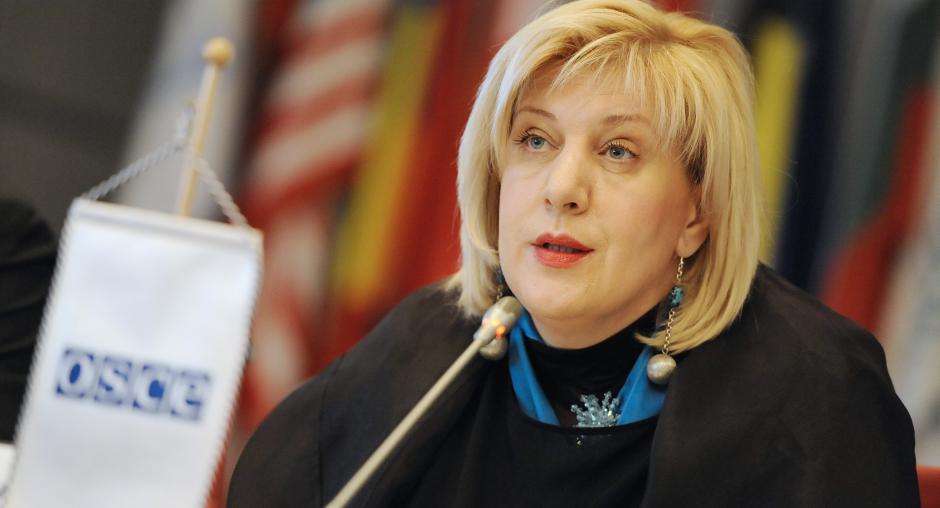Conflicting sides should stop targeting media professionals covering Ukraine crisis, says OSCE representative

VIENNA, 19 May 2014 – OSCE Representative on Freedom of the Media Dunja Mijatović today condemned the continued harassment of journalists covering the conflict in Ukraine.
“Journalists covering the Ukraine crisis are convenient targets of the conflicting sides,” Mijatović said. “I reiterate my call to all sides to stop intimidating and threatening members of the media and to let them do their jobs.”
On 18 May Osman Pashayev and Cengiz Kizgin, journalists with Otkritiy Krymskiy Kanal, were detained by a group in military uniform in Simferopol. The journalists were interrogated, beaten and had their equipment seized. They were later released.
Also on 18 May Ukrainian military forces detained Marat Saichenko and Oleg Sidyakin, journalists with Russian online portal LifeNews, and reportedly handed them over to law enforcement authorities. In a letter to Minister of Internal Affairs of Ukraine Arsen Avakov, Mijatović expressed her concern and asked the authorities to release the journalists and thoroughly investigate the case.
On 17 May, representatives of the Federal Security Service detained Waclaw Radziwinowicz, a journalist with Gazeta Wyborcza, in Simferopol. He was reportedly accused of illegally crossing the border and, despite presenting all appropriate entrance documents, released only after six hours of interrogation. Nikolai Semenoi, journalist with the Ukrainian newspaper Den, and photojournalist Len’yara Abibulayeva were also detained with Radziwinowicz and released after interrogation.
Also on 15-16 May, Russian journalists from various media, including Zvezda, NTV, Perviy Kanal and TVC channels, were denied entry to Ukraine. Reportedly, all journalists were accredited by responsible Ukrainian authorities to cover the presidential election.
“Journalists must be free to do their job without fear for their safety. In times of conflict the plurality of voices and opinions are needed more than ever in order for the citizens to be informed,” Mijatović said.
“The media freedom situation in Ukraine reflects the overall security situation, which will not improve if there is no action,” Mijatović said. “All political leaders engaged in resolving the crisis in Ukraine need to clearly understand that violations of media freedom are unacceptable.”
Today the Office of the OSCE Representative on Freedom of the Media is organizing a roundtable discussion with representatives of media organizations from the Russian Federation and Ukraine. The objective of the roundtable is to facilitate a dialogue between the journalists of the two countries and define the support measures to enhance journalists’ professional standards and safety.
The OSCE Representative on Freedom of the Media observes media developments in all 57 OSCE participating States. She provides early warning on violations of freedom of expression and media freedom and promotes full compliance with OSCE media freedom commitments. Learn more at www.osce.org/fom, Twitter: @OSCE_RFoM and on facebook.com/osce.rfom.
